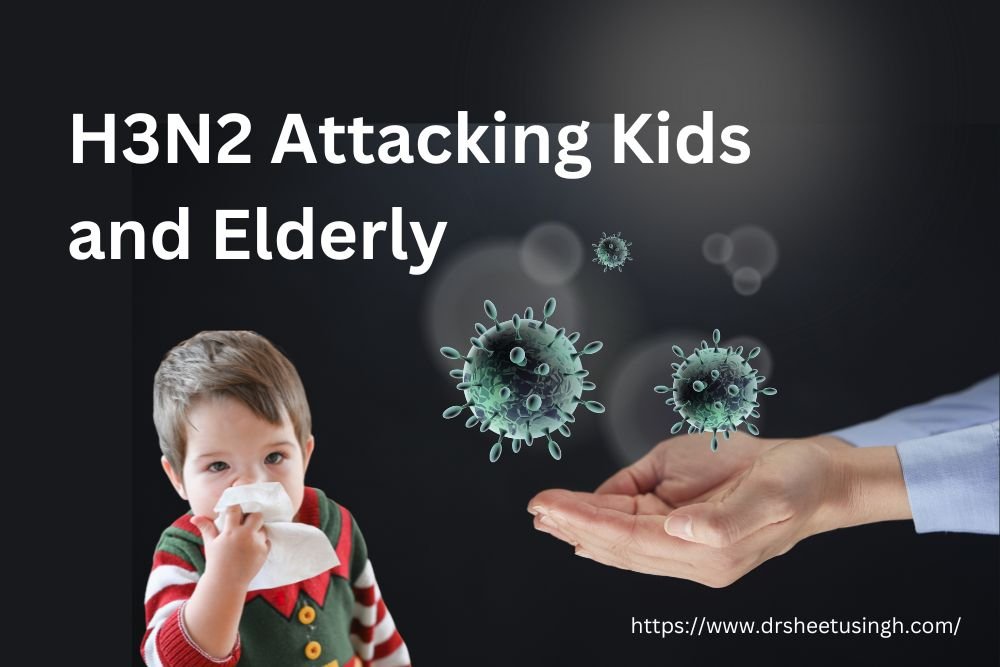Doctors warn that because the H3N2 Virus is attacking kids and the elderly, it is essential to re-enforce Covid guidelines like wearing masks, social separation, and other pandemic-era rules. Many youngsters and the elderly get infected with this virus and recover in 10 to 12 days. According to health professionals, 7% of youngsters are admitted to ICUs. The virus is classified as a flu virus, but its effect is similar to a corona, in that it causes fever and damage to the lungs. H3N2 is a strain of the common flu, according to the World Health Organization (WHO). According to WHO, seasonal influenza is an acute respiratory infection caused by influenza viruses that circulate around the world. They are divided into several subtypes. Humans are now infected with influenza viruses of Subtypes A (H1N1) and A (H3N2).
What Is The H3N2 virus?
Rajasthan Hospital’s Dr. Sheetu Singh stated: “we discharged one patient (38 years old) after a month since both of her lungs had become white due to a severe illness. She was placed on a respirator for ten days. She arrived with pneumonia, fever, and a cough.”
What Are The Signs And Symptoms
According to WHO, common symptoms of seasonal influenza include a rapid fever, a cough (typically dry), a headache, muscle, and joint discomfort, a sore throat, and a runny nose. The cough can persist for two weeks or more, depending on the severity. Most people recover from fever and other symptoms without the need for medical attention within a week. Those with comorbidities, on the other hand, can suffer from severe sickness or even death from influenza.
How Does It Spread?
Seasonal influenza, according to the WHO, spreads quickly. Crowds increase the likelihood of the spread. The virus spreads when an infected person sneezes or coughs. Droplets containing viruses that come out of the nose or mouth are distributed into the air and can affect people up to a meter distant as well as those in close proximity.
The H3N2 Virus spreads from infected pigs to people via infectious droplets spat by the pig while coughing or sneezing. In the same way, this virus spreads through humans.
How Can It Be Prevented?
Vaccination is the most effective strategy to stop the spread. Vaccines that are both reliable and efficacious have been in use for more than six decades. Also, people who are not in the high-risk group are recommended to limit their interactions with others. Face masks and frequent hand washing are recommended to avoid spread. Those who are at high risk should seek emergency medical attention. It is recommended to keep a close eye on the patient’s health and to seek medical guidance if the patient’s condition worsens. Most importantly, medical professionals warn against self-medication.
Advice From Medical Experts
- Hand washing and drying should be done on a regular basis.
- Covering one’s nose and mouth when coughing or sneezing is an example of good respiratory hygiene.
- Those who are unwell or have flu symptoms should be isolated as soon as possible.
- Avoid contact with infected people.
- Avoid touching your eyes, nose, or mouth.


